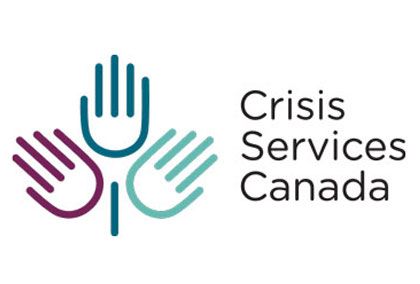Crisis and Immediate Supports
There are a number of immediate and crisis supports available in Regina– some of these resources are listed below. In the event of an emergency, please dial 911 or visit your local emergency department.
-
How do I know if I need help immediately?
If you or if you have:
• hurt or harmed yourself or someone else,
• are feeling desperate and hopeless,
• are worried you might hurt yourself or someone else,
• are having thoughts of suicide, made a plan to harm yourself,
• the means to hurt yourself or someone else,
• attempted suicide or hurt yourself before.
Please get help immediately! Please do one of the following:
• call 911 immediately,
• go directly to the nearest Hospital Emergency Department.
When you call 911, tell them:
• exactly where you are calling from, how you are feeling,
• if you have done anything to harm yourself, if you are in an unsafe situation,
• keep talking to 911 while you wait for help to arrive.
-
Why go to the emergency room?
Some reasons people have gone to the Emergency Room:
• they have injured themselves.
• they are seeing, hearing, smelling or feeling things that are bizarre and frightening and/or hearing voices • that tell them to do something dangerous.
• using excessive drugs or alcohol, or when coming down from drugs or alcohol.
• experiencing side effects from prescribed medication.
• having thoughts of hurting themselves or of suicide, with a plan to do it (or a history of attempts).
-
What can I expect when I go to the Emergency Room (ER)?
People working in the ER will provide support, problem-solving and help manage a crisis situation. Above all, they will work to keep you safe. All ER services are confidential and based on your needs. Whenever possible, the ER staff will try to avoid hospitalization and help refer you to where you will get the most help.
Waiting to Talk
The ER can be an overwhelming place. It is always best to have a supportive person that you are comfortable with, wants to help and understands your situation to go through this process with you. If you don’t have someone, or are not comfortable having someone, feel free to take notes or ask questions. While in the ER, you may experience a wait time, which can be distressing and frustrating. You’ll talk to a nurse at first and they will ask you questions about what brought you into the ER. Try to be honest and truthful regarding your symptoms and how long they have been going on.
Assessing Your Situation
Questions in the ER will focus on the crisis happening now. Physicians will ask about your mood, sleep patterns, appetite, psychiatric history, medications, substance use, family history, stressors/supports, past history and childhood factors. They will also need to know whether you’ve had thoughts of suicide, made attempts, or have had instances of hurting yourself or others. This is essential information to help them get all the information they need to make the best plan of care.
Creating a Plan of Care
After meeting with the physician, a plan of care will be set up for you. It lists the formal and informal strategies (worked out by you and the staff) to keep you safe and support your recovery.





